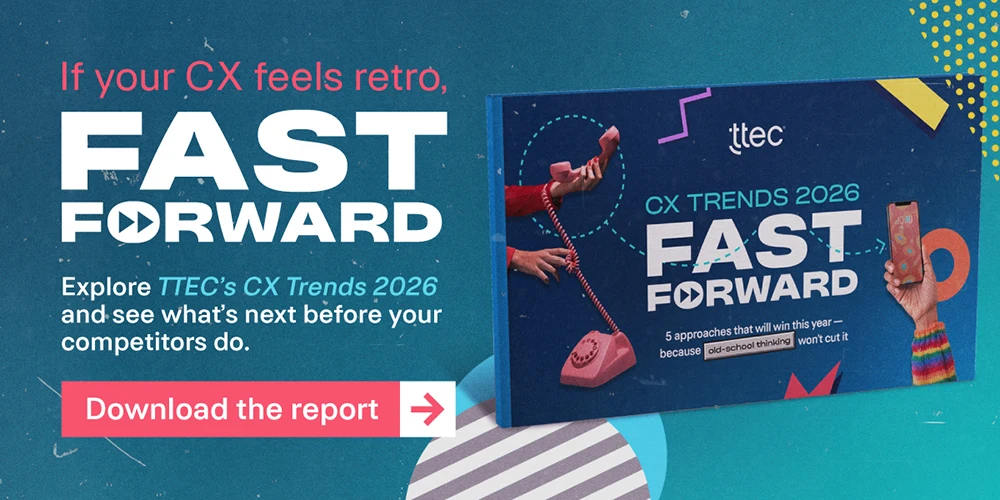A healthy emotional connection is based on experiences that make one feel valued as an individual. That’s why building an emotional connection between customers matters more than ever as differentiated products and e-commerce make it easier to switch out a relationship gone sour.
Deloitte Digital’s research report, Exploring the Value of Emotion-Driven Engagement, discusses just how impactful the link between emotionally driven experiences in consumer engagement can be to the brand affinity, loyalty, and lifecycle of a customer. In fact, the report found that 39 percent of customers will switch a brand after a bad experience.
We analyzed four other key findings from the report and compared it to top players in the market who are championing emotional engagement.
1. Emotional engagement= brand loyalty
The lifecycle of a customer and a brand relies on three factors that must be considered at the right time in the customer journey: rational considerations, emotional responses, and shared values.
- Rational considerations: These are the basic factors such as customer service, price, and loyalty programs that can make or break a relationship. Deloitte attributes 70 percent of customer loss to rational factors, compared to only 18 percent leaving because of emotional reasons.
- Emotional responses: These are the emotions that lay the groundwork for the beginning and end of a customer’s journey with a brand, which can range from anger to compassion or joy to sadness. Findings show that 60 percent of customers use the same emotional language for family, friends, and pets as their favorite brand. Brands that foster healthy emotional responses from their customers can make rational considerations less of a determining factor in their brand loyalty.
- Shared values: Similar goals and values, such as conservation efforts, gender equality, and social responsibility are important during the initiation of a customer lifecycle and building brand awareness, but it doesn’t hold as much strength as emotional needs. In fact, only 3 percent of customers would recommend a brand based on its shared values while 44 percent would suggest a brand based on emotional values.
Overall, emotional connections hold the most value to customers, but it must also be met with both logical and conscientious offerings.
Where we see this today: Outdoor clothing and gear brand Patagonia has made its values around conservation in politics well-known, and it connects with customers on a deeper level by building an understanding of how its relationship with the customer impacts the world.
2. Customer relationships go both ways
The report found that 60 percent of customers have a relationship with a brand. As in any modern relationship, people expect to communicate and be understood (both online and in-person), and Deloitte’s research finds that brands that can imitate the positive qualities of a human relationship will win loyalty.
One of the most important qualities in this relationship is providing meaningful feedback that can be acted upon. The research shows that almost half of customers love it when a brand brings up their latest interaction, and two-thirds expect this feedback to be incorporated into future product and services, as well as customer loyalty programs. Customers want their history with a brand to provide new levels of personalization and meaning.
Where we see this today: Fast food chain Wendy’s is famous for pioneering humorous and hyper-personalized interactions with fans via Twitter. Most recently, popular musician Chance the Rapper joined others in a request via Twitter to bring back Wendy’s spicy nuggets. The company responded by agreeing to bring the menu item back if a post proposing the return of the item received 2 million likes. It received 2.2 million likes and much fanfare from its customers, so spicy nuggets will once again grace Wendy’s menu board.
3. Don’t cross a line
Customers understand that data is collected from them, but there is an increasing demand that this information is used transparently and fairly. The survey asked customers what emotional metric ties them most closely to a brand, and an overwhelming majority (83 percent) responded with “trust.” On what the report calls, “sneaky surveillance,” 35 percent of customers do not want brands to collect their browsing history to be used for ads. On the other hand, 52 percent of customers do want brands to collect data on how satisfied they are with a product and 49 percent want brands to know how long they’ve been a customer.
The report explained that brands need to be aware that customers are well educated on data abuse and they need to be shown that their information is being used respectfully.
Where we see this today: For a product that literally tracks your every move and other health information, Fitbit wins by sharing an in-depth and easy to follow privacy policy on customer data. With a goal to be more transparent with user data, Fitbit’s privacy policy covers what information it collects, how it uses the information, and the user’s rights regarding the data being shared.
4. Keep customer experiences consistent
Many brands offer an excellent customer experience in-store, but customers expect a great digital experience as well. Deloitte revealed that 70 percent of customers cite “reliable, great customer service” as to what makes a brand their favorite to shop online. Brands that suffer from poorly designed interfaces, lack of emotional connections, or siloed departments on the digital side can be incredibly damaging to how their customers feel about them. Brands need to recognize that their tailored brand experience need to be consistent and predictable across all channels or they risk destroying the relationship they’ve built.
If a brand does make an error or delivers an inferior service on a platform, it should use it as an opportunity to provide a genuine and straightforward apology toward what went wrong and how it will be resolved. Otherwise, customers may leave for an experience that is easier and quicker. As the report states, “The foundation of emotional connection is trust; and the foundation of trust is consistency.”
Where we see this today: The Dunkin’ Donuts app for smart devices creates a consistent experience across platforms by allowing users to customize their order in real time while providing relevant and personal offers digitally, such as wishing users a happy birthday with a free coffee or donut gift.
Emotional engagement starts today
The study’s conclusion is simple—understanding your customers’ emotions through all parts of their journey with a brand is key to obtaining loyalty. But obtaining this loyalty means that a brand must understand where rationality overtakes emotions, how customers like and do not like to see their data used, and what it takes to keep all of these values consistent across all customer channels.

